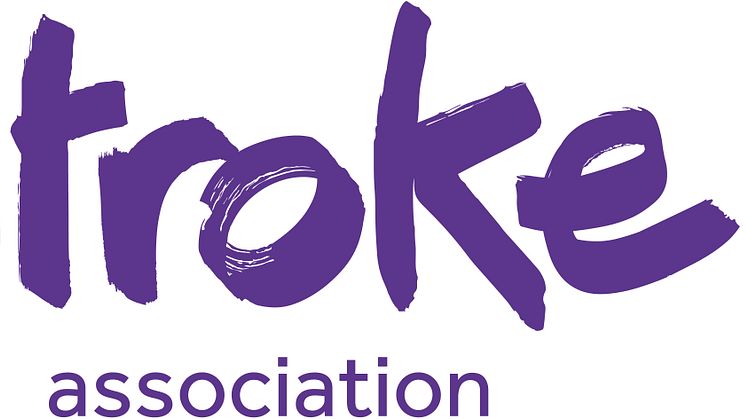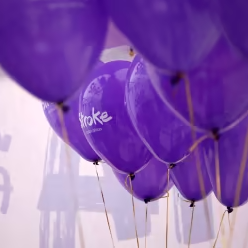
Press release -
Stroke survivors entering care homes are missing out on crucial rehabilitation and being ‘written off’, the Stroke Association and Chartered Society of Physiotherapy are warning today
A survey(i) for the two organisations found that 3 in 5 care homes are not following National Institute for Health and Care Excellence (NICE) guidelines that the needs of a stroke survivor must be assessed by a specialist within 72 hours of admission.
Around 8,000 people are discharged from hospital to a care home after a stroke(ii) every year. Without specialist assessments many of them will not get access to the therapies they need.
A report(iii) from the Centre for Policy on Ageing says that stroke is the second most common neurological condition among care home residents, after dementia.
Patrick Olszowski, Stroke Association’s head of policy and campaigns said:
“Stroke survivors in care homes are frequently good candidates for rehabilitation. Yet all too often they’re not getting services vital to their recovery and quality of life because they are not properly assessed.
“At present neither the health system nor care homes are clear as to whose responsibility it is to ensure these assessments happen. People in care homes are in the greatest need of support, services like physiotherapy can make a world of difference. We are urging those who plan and provide health and care to take action and ensure stroke survivors are assessed and their needs met. Having a stroke is bad enough, being written off is worse.”
The survey found that four out of five care home representatives agreed that services like physiotherapy improve stroke survivors’ ability to regain and maintain a good quality of life. However, the CSP and Stroke Association say even a short delay in therapy can quickly reverse the improvements made whilst in hospital and functions deteriorate.
Sue Rees, chair of council for the Chartered Society of Physiotherapy, said:
“A delay in continuing with physiotherapy after discharge from hospital can limit a person’s rehabilitation potential and reduce their quality of life in the longer-term.
“This can be disastrous for the individual and can increase costs for health and social care providers, when early access to treatment could have ensured a better outcome for less.
“It is essential that commissioners provide sufficient community physiotherapy services to ensure no-one is written off in this way and that all stroke survivors are given every opportunity to make the best possible recovery.”
-Ends-
Notes to editors
For further media information about the CSP please call the CSP press office on 020 7306 1111, email pressoffice@csp.org.uk. Out of hours please call Becca Bryant, head of press and PR (job-share) on 079172 40819, Jennie Edmondson, head of press and PR (job share) on 07786 332197, Jon Ryan, senior media adviser, on 07917 091200, or Michelle Carnovale, PR and social media officer, 07766 994141.
(i) The survey was done by Opinium Research LLP in January 2015. 250 telephone interviews were conducted with care home staff, (125 residential care homes and 125 care homes with nursing).
(ii) This figure comes from the Stroke Sentinel National Audit programme which is based on hospital admissions in England, Northern Ireland and Wales. 8000 people are about 11% of stroke patients are discharged from hospital into care homes.
www.strokeaudit.org/Documents/Results/National/JulSep2014/JulSep2014-PublicReport.aspx
(iii) The changing role of care homes www.cpa.org.uk/information/reviews/changingroleofcarehomes.pdf
(iv) A stroke is a brain attack which happens when the blood supply to the brain is cut off, caused by a clot or bleeding in the brain. There are around 152,000 strokes in the UK every year and it is the leading cause of severe adult disability. There are over 1.2 million people in the UK living with the effects of stroke.
The Chartered Society of Physiotherapy is the UK’s professional, educational and trade union body. We have more than 53,000 members, including chartered physiotherapists, physiotherapy students and support workers.
A briefing on the benefits of physiotherapy for stroke survivors can be read here.
The Stroke Association works directly with stroke survivors and their families and carers, with health and social care professionals and with scientists and researchers. We campaign to improve stroke care and support people to make the best recovery they can. We fund research to develop new treatments and ways of preventing stroke. Together we can conquer stroke.
The Stroke Helpline (0303 303 3100) provides information and support on stroke. More information can be found at www.stroke.org.uk
Links
Topics
Categories
A stroke is a brain attack which happens when the blood supply to the brain is cut off, caused by a clot or bleeding in the brain. There are around 152,000 strokes in the UK every year and it is the leading cause of severe adult disability. There are over 1.2 million people in the UK living with the effects of stroke.
Stroke Association is a charity. We believe in life after stroke and together we can conquer stroke. We work directly with stroke survivors and their families and carers, with health and social care professionals and with scientists and researchers. We campaign to improve stroke care and support people to make the best recovery they can. We fund research to develop new treatments and ways of preventing stroke. The Stroke Helpline (0303 303 3100) provides information and support on stroke. More information can be found at www.stroke.org.uk











